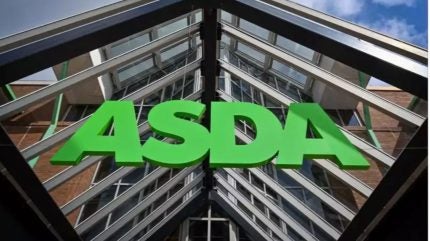
Lower and middle-income households in the UK saw their spending power fall for the fourth month in a row in October 2026, according to Asda’s latest income tracker.
According to the British supermarket chain, 60% of families have reported a decline in their disposable income.

Discover B2B Marketing That Performs
Combine business intelligence and editorial excellence to reach engaged professionals across 36 leading media platforms.
The data indicates that about one in five households, typically with annual incomes of around £11,000 ($14,405) or under, faced an average weekly deficit of £74, leaving them unable to cover basic living costs.
A further 40% of households on roughly £25,000 a year were left with only £10 a week after paying for essentials.
Households with annual earnings of about £41,000 retained £90 after covering necessary outgoings.
The tracker showed that wage increases for these income groups continue to lag behind the combined impact of higher essential spending and increased tax burdens.

US Tariffs are shifting - will you react or anticipate?
Don’t let policy changes catch you off guard. Stay proactive with real-time data and expert analysis.
By GlobalDataThe data comes as inflation showed its first annual slowdown since May 2025, with the rate easing in October but still at 3.6%, above the Bank of England’s target.
Housing and utilities remained the biggest drivers of inflation. Water charges rose 26.4% year-on-year, while food prices were up 4.9%.
Within food, the cost of bread and cereals increased by 1.2% between September and October.
The cost of the core basket of essential goods and services monitored in its income tracker was 4.6% higher than a year earlier.
Households headed by people aged 30 to 49 were identified as the most exposed to rising costs, with average weekly essential spending of £799 and monthly tax bills of £281.
Sam Miley, head of forecasting and thought leadership at Cebr, which produces the income tracker on behalf of Asda, stated: “While the outturn inflation data for October supports Cebr’s view that inflationary pressures have peaked, there remain considerable risks to the outlook for the income tracker. Worse than expected labour market figures for September illustrate that the UK labour market has been weakened by raised employment costs and weak demand.”
In November 2025, Asda raised £568m ($743m) by selling 24 supermarket sites and a distribution depot, then leasing them back on long-term deals.
Stores in Small Heath, Colindale, Coventry Abbey Park and Killingbeck were bought by DTZ Investors, with Asda remaining as tenant.
The other 20 stores and the Lutterworth distribution centre were sold to Blue Owl Capital under the same sale-and-leaseback arrangement.





